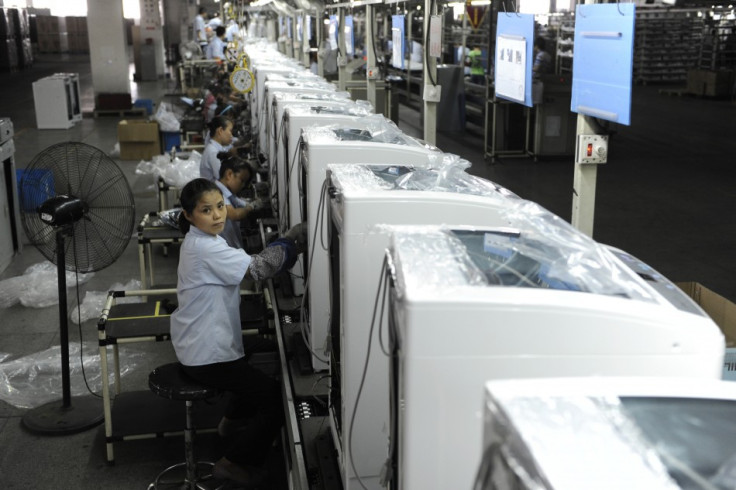China HSBC Markit PMI Rises to Two-Month High But Growth Concerns Remain

A measure of China's manufacturing industry has come in better than expected for September, helping the Australian dollar to bounce back a bit from a new eight-month low on Monday.
However, the data do not really indicate any strong recovery in the world's largest economy which will still need additional stimulus to keep the pace of growth, analysts said.
The HSBC Markit Purchasing Managers' Index rose to 50.5 in September, a two-month high, preliminary data showed.
The final reading for August was 50.2 and analysts were expecting a decline to 50 this time.
The manufacturing output index came in at 51.8, unchanged from a two-month low in August. Above 50, the index shows expansion.
HSBC analysts preferred to highlight the mixed nature of the data.
"The picture is mixed, with new orders and new export orders registering some improvement while the employment index declined further and disinflationary pressure intensified," said Hongbin Qu, HSBC's China economist.
"Economic activity in the manufacturing sector showed signs of stabilisation in September. However, overall the data still point to modest expansion," Qu said.
"The property downturn remains the biggest downside risk to growth. We continue to expect more monetary easing from the PBoC in order to steady the recovery."
Australian Dollar
The AUD/USD strengthened to 0.8916 on Tuesday, up 0.5% from the previous close of 0.8873. The pair had fallen to as low as 0.8852 on Monday, its lowest since late January.
The Australian dollar is highly sensitive to Chinese data as the bulk of Australia's exports goes to China whose industrial and consumption demand outlook is crucial for the mineral-rich nation.
Recent China Numbers Weak
With all the recent data pointing to slowing recovery, just one positive surprise is unlikely to weaken the call for continued growth-supportive policy in China.
China's foreign direct investment fell to a two and a half year low in August, indicating the growth challenges for the world's second largest economy, as per the commerce ministry data.
The 13 September data had shown industrial production growth slowing to 6.9% in August from 9.0% in July while analysts had been expecting a slight decrease to 8.8%.
Another release on the same day showed that retail sales growth slowed to 11.9% from 12.2% against the market consensus of 12.1%.
Urban investment rose 16.5% in August, slower than the 17.0% growth in the previous month, that too trailing market expectations of 16.9%.
The industrial output data came as a shocker to many analysts who said the numbers would prompt the market to brace for additional stimulus measures by the Chinese authorities.
China has been taking sector-specific stimulus steps in order to decrease the possibility of bad loans.
Chinese Premier Li Keqiang told the World Economic Forum earlier this month that his country would avoid printing money, continue its focused spending on rail, energy and public housing projects and maintain its targeted monetary-easing programme for first-time home buyers and small companies.
At the same time, China's closed capital account, negative external funding requirement and generally healthy public finances, mean that the direct risks from a spike in US rates is limited, Fitch said earlier.
© Copyright IBTimes 2025. All rights reserved.






















